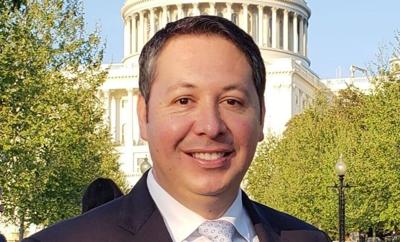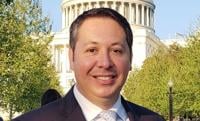
Rey Gonzalez Jr.
AUSTIN - If the Texas Medical Board thinks it has the power to police campaign speech, it will have to defend that position on the merits, says the Texas Supreme Court.
When Rey Gonzalez Jr. ran for Congress in 2020, he campaigned as a physician and an attorney – a statement that caught the attention of the Texas Medical Board.
Gonzalez graduated from an accredited medical school in the Caribbean in 2008, but never sought a medical license. Two years later, he graduated from a law school and earned his law license.
While campaigning, he referred to himself as “Dr. Gonzalez” and called himself a “physician.”
“By God’s grace I am a physician and an attorney,” Gonzalez’s candidate profile stated.
“Because he was running for Congress, Gonzalez might’ve expected to interact with various local election officials, the Attorney General, or the Federal Election Commission,” states the Supreme Court’s Oct. 31 opinion. “But he probably didn’t expect to be investigated by the Texas Medical Board.”
TMB promotes public health by stopping anyone without a license from practicing medicine, and by ensuring that licensed doctors adhere to standards of care.
“Gonzalez drew TMB’s ire not because of conduct in the operating room, however, but because of statements he made on the campaign trail,” the opinion states.
After receiving a complaint, TMB opened an investigation to determine whether Gonzalez’s statements amounted to the unlicensed practice of medicine. TMB concluded that Gonzalez had violated the Medical Practice Act and the Healing Art Identification Act, issuing a cease-and-desist order. In response, Gonzalez sued TMB.
TMB argued that Gonzalez’s campaign speech violated the acts because he was not a licensed medical professional. Conversely, Gonzalez contended that he did not break the law and, if he did, then the statutes in question violate his free-speech rights.
Court records show a district court dismissed all of Gonzalez’s claims for want of jurisdiction. A court of appeals affirmed most of his claims but did send one of them back for further proceedings.
“It should’ve sent more, for the redundant-remedies doctrine does not bar his ultra vires (beyond the power) and as-applied constitutional claims,” the opinion states. “If the Texas Medical Board thinks it has the power to police campaign speech, it will have to defend that position on the merits.
“We reverse in part, affirm in part, and remand to the district court for further proceedings on Gonzalez’s facial constitutional claim, his as-applied constitutional claim, and his ultra vires claim.”
Supreme Court case No. 24-0340






